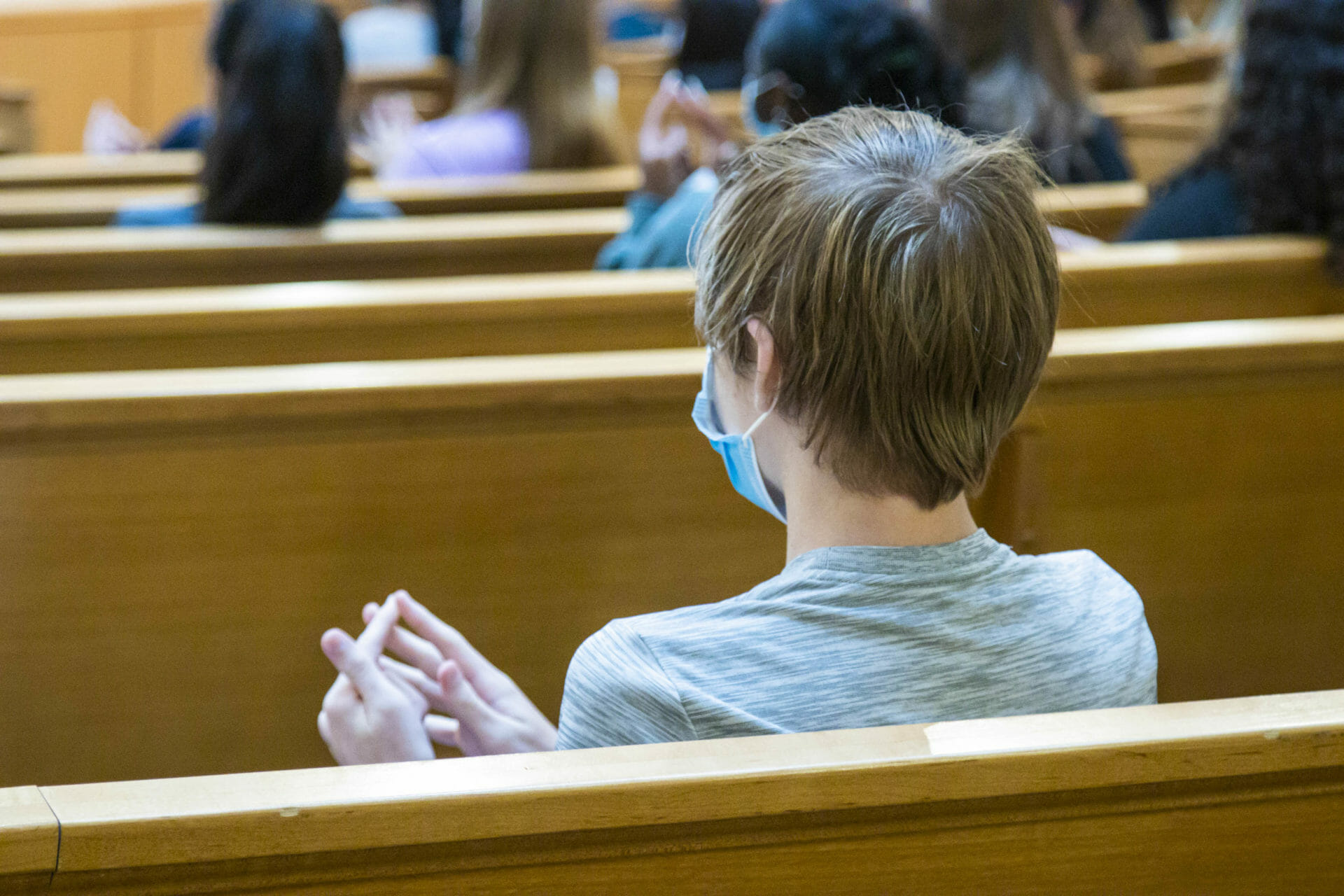Two speakers from the National Alliance on Mental Health St. Louis (NAMI) visited MICDS last week and spent some time in Brauer Auditorium with 10th grade students. NAMI St. Louis is an organization of families, friends and individuals whose lives have been affected by mental illness. Together, they advocate for better lives for those individuals who have a mental illness, and they offer support, education and advocacy.
Students learned both how to recognize and support someone who has mental health issues. The presentation, titled Ending the Silence, helps audience members learn about the warning signs of mental health conditions and what steps to take if you or a loved one are showing symptoms of a mental health condition. The first speaker asked the audience, “What would you do if you hurt your ankle?” Several students said, “Go to the doctor.” Right, said the speaker. So why wouldn’t you do the same thing if you are struggling with mental health?
She discussed what a stigma is, and how stigmas can stand in the way of people getting the help they need. Students thought about what coping mechanisms they use to deal with stress and anxiety, including reading a good book, watching television, and playing video games. Talking with a trusted adult is also an option. Finally, she led students through a “roller-coaster” breathing exercise. Students held up their right hands, with fingers spread wide. With the pointer finger of their left hands, they traced the outline of their right fingers, breathing in on the “uphills” and breathing out on the “downhills.” This type of slow, deep breathing can be calming and can help you reset your mental state.
After a brief video where teenagers shared their thoughts on how important it is to “break the silence” around mental health, a young woman with a mental health condition took the stage. She talked about her childhood, growing up in a family of abuse and divorce. She explained that she went to school just down the street, and how she didn’t reach out for help for a variety of reasons. Her journey involved reaching a point of desperation before finding solutions. Today, she sees a therapist and takes medication to help with her illness, and is working on her undergraduate degree. She explained that her path may not look “typical,” but it’s hers to own and to figure out, and she is proud of how far she has come.
This powerful testimony, and the helpful information shared with it, offer our students new insights, tools, and resources to ensure they are aware of and working on their own mental health, and are available to help their friends. Thank you to Mr. David Hotaling, Upper School Counselor, and to the two representatives from NAMI for this wonderful opportunity.


















